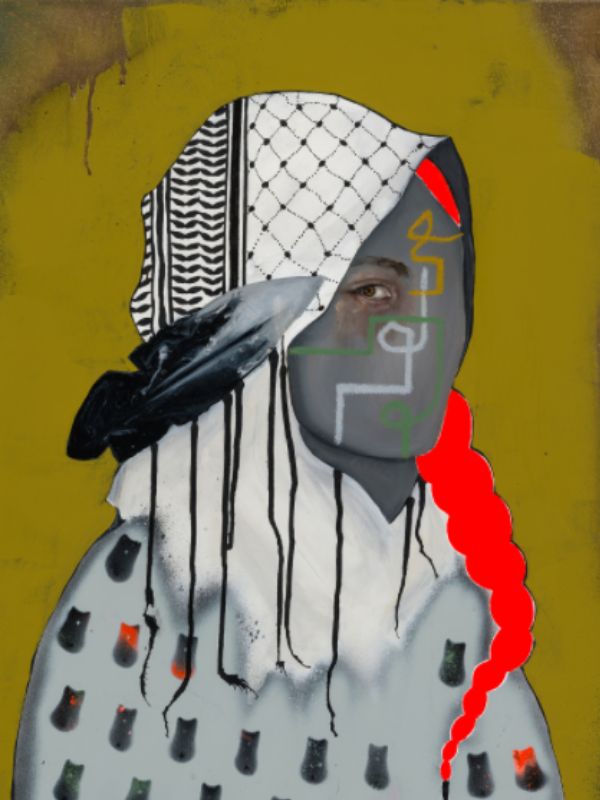An upcoming artist-in-residency by Lakota artist Danielle SeeWalker in Vail, Colo., was abruptly canceled by the town yesterday.

According to SeeWalker, in January, Vail’s Art in Public Places program extended an invitation to her to participate in a three-week residency program. It was an opportunity with promise, a chance to showcase cultural richness and diversity while engaging with the local community through art that ended with a disheartening narrative of discrimination and suppression.
In January, SeeWalker eagerly accepted the residency offer, viewing it as an opportunity to positively represent the Indigenous community and break new ground as the first Native American to undertake the residency.
SeeWalker signed a contract, expecting the residency would include multiple community art events including working with youth, painting a mural in Vail Village, an art exhibition and giving a talk at their Symposium. In an email to Native News Online, SeeWalker said she turned down other job opportunities to fulfill her contractual obligation to the residency.
Yesterday morning, she received a phone call from Art in Public Places, telling her the residency was canceled. The reason given was that a recent piece from SeeWalker titled “G is for Genocide" — which she unveiled on Instagram in March— was “too political.”
The piece features a Native woman adorned with symbols of solidarity with Palestine. SeaWalker stated she was shocked the town canceled the residency without giving her the opportunity for dialogue or explanation.
“I can’t help but take this personally as silencing not only an artist, but a person of color. This piece of artwork has nothing to do with the Town of Vail. It had never been brought to the Town of Vail’s attention,” SeeWalker said in an Instagram post.
SeeWalker's intention behind the artwork was to draw parallels between contemporary global conflicts, such as the plight of those in Gaza, and the historical genocide of Native American populations.
The Town of Vail has not responded to Native News Online’s request for comment at press time.
“If you feel compelled or have any type of reaction to this, I wanted to humbly request from the community that you take a moment to write to the Town of Vail and let them know that the continued silencing of our people is not okay,” SeeWalker wrote in an email to Native News Online. “People of color continue to be silenced, oppressed, and have opportunities taken from them and it's not right. I'll always stand up for that, for myself, and for all others.”
More Stories Like This
Watermark Art Center to Host “Minwaajimowinan — Good Stories” ExhibitionMuseums Alaska Awards More Than $200,000 to 12 Cultural Organizations Statewide
Zuni Youth Enrichment Project Takes Top Emerging Artist Apprentices to Phoenix for Artistic Exploration and Cultural Immersion
From Dishwasher to Award-Winning Chef: Laguna Pueblo's Josh Aragon Serves Up Albuquerque's Best Green Chile Stew
Rob Reiner's Final Work as Producer Appears to Address MMIP Crisis
Help us defend tribal sovereignty.
At Native News Online, our mission is rooted in telling the stories that strengthen sovereignty and uplift Indigenous voices — not just at year’s end, but every single day.
Because of your generosity last year, we were able to keep our reporters on the ground in tribal communities, at national gatherings and in the halls of Congress — covering the issues that matter most to Indian Country: sovereignty, culture, education, health and economic opportunity.
That support sustained us through a tough year in 2025. Now, as we look to the year ahead, we need your help right now to ensure warrior journalism remains strong — reporting that defends tribal sovereignty, amplifies Native truth, and holds power accountable.
 The stakes couldn't be higher. Your support keeps Native voices heard, Native stories told and Native sovereignty defended.
The stakes couldn't be higher. Your support keeps Native voices heard, Native stories told and Native sovereignty defended.
Stand with Warrior Journalism today.
Levi Rickert (Potawatomi), Editor & Publisher


